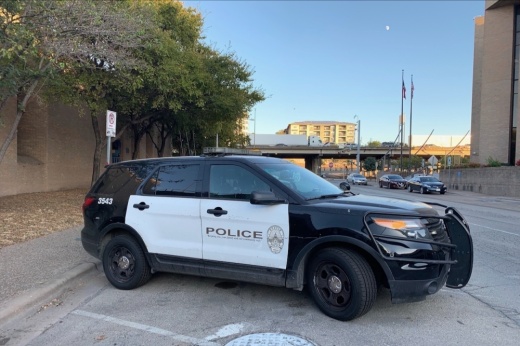Automated license plate readers, or ALPRs, had been in use on Austin Police Department vehicles prior to City Council's 2020 shift of more than $100 million out of the police department. While a new state law effectively forced council to return that money to APD's budget the following year, license plate readers remained on the shelf.
District 6 Council Member Mackenzie Kelly proposed the return of ALPRs with a price tag of nearly $115,000 for the city's upcoming fiscal year. Kelly said her request stemmed from a desire to give police the resources needed to quickly respond to crimes such as auto theft and kidnapping. The program's reinstatement is supported by APD, its union, the Greater Austin Crime Commission and both Travis and Williamson county law enforcement offices.
“Given the staffing shortages, you’d think we’d give the police department back a cost-effective and targeted tool that disrupts criminal activity, locates stolen vehicles, solves crimes and saves lives. Let’s allow the police chief to lead the department instead of second-guessing him," said GACC executive director Cary Roberts.
Kelly's proposal was separated from the August budget vote to allow more time for consideration of what has become controversial public safety policy. Opposition to the program grew this summer, with several community groups sharing reservations about granting APD more surveillance powers. The majority of residents speaking on the issue at council's Sept. 1 meeting asked to table the program given worries about the technology's potential for racial profiling and overpolicing without significant oversight.
On the council dais, District 4 Council Member Chito Vela has been vocal about his own "grave concerns" over the program, infringement on residents' and motorists' privacy and potential data-sharing outside of APD.
Those concepts led him to forward an alternate version of Kelly's original resolution with tighter guidelines for the program and APD oversight. If the policy does return, Vela said it should be in line with a 2003 council resolution supporting civil liberties drafted in response to the USA PATRIOT Act passed after 9/11.
Council's Sept. 1 look into the ALPR program came with the understanding that officials would move back their vote to allow further workshopping. Police Chief Joseph Chacon also appeared during the evening discussion to speak on APD's handling of the technology and data, which he labeled as a helpful aid for his department's police work.
“We need these type of tools, and given our staffing, it’s important for us to leverage technology and to be able to use it to be more effective in solving crime, especially violent crime," Chacon said.
Program review
Vela's item and council's questioning of Chacon covered several aspects of the program's likely rollout and management. One remaining issue for officials to resolve is the amount of time license plate data would be retained—Chacon asked for "the greatest amount of time that council feels comfortable with," Kelly proposed 30 days, and Vela 3 minutes. Vela also expressed concern that the tool could be expanded for use in theft, mischief and assault misdemeanor investigations instead of solely for more serious felony cases.
The details of an annual audit of the ALPR program remain to be finalized as well. Kelly said APD should take on that review and share results with the Office of Police Oversight and civilian Public Safety Commission, while Vela wants the OPO to tackle it. Chacon recommended against an OPO-led audit and said the work is not a good fit for that office.
Mayor Steve Adler said some consideration should be made for the city's response to potential immigration-related data requests from federal agencies such as U.S. Immigration and Customs Enforcement, or from Texas entities in relation to abortion. Officials also noted APD's links to the Austin Regional Intelligence Center, a data hub accessible by law enforcement agencies across multiple counties, although Chacon said APD could restrict access to license plate information to its own officers.
After council's review, Kelly commented on the positive outcome she hopes the brief delay will bring for the official return of ALPRs in Austin.
“I want our community to sleep better at night knowing that, despite the shortage of officers in our community right now, we’ve given those officers that we have a force multiplier that will benefit the community," Kelly said. "I’m supportive of this postponement because I have a sense among my colleagues that we want this technology to work for our community, and for our officers."
Several members signaled their support for the measure if more adjustments to the program are made, although Vela said he remains skeptical of the program.
“There’s no question that the more data that APD has, the easier it is to solve crimes," Vela said. "There’s always a balance between security and liberty. ... My personal values always lean toward liberty. Particularly when we’re talking about innocent people just going about their business around town, I am extremely uncomfortable with collecting and keeping databases on peoples’ whereabouts."
While Chacon stated that "any system can be abused," he told council he believes the most negative outcomes from ALPRs stem more from bad program policies than the concept overall.
The return of Austin law enforcement's vehicle data collection would follow similar moves by other Central Texas cities this year. To the north, Pflugerville's police department installed more than two dozen license plate readers at intersections around the city to photograph passing vehicles, in addition to scanning for stolen vehicles or missing people. Those cameras would store photos for 30 days, PPD said in April.
Just last month, Buda City Council set a new policy for their police department's ALPR use including a 30-day data purging timeline. And earlier in Bee Cave, officials sent funds to their police for two cameras with license plate reader functions to use at a local park and shopping center.





